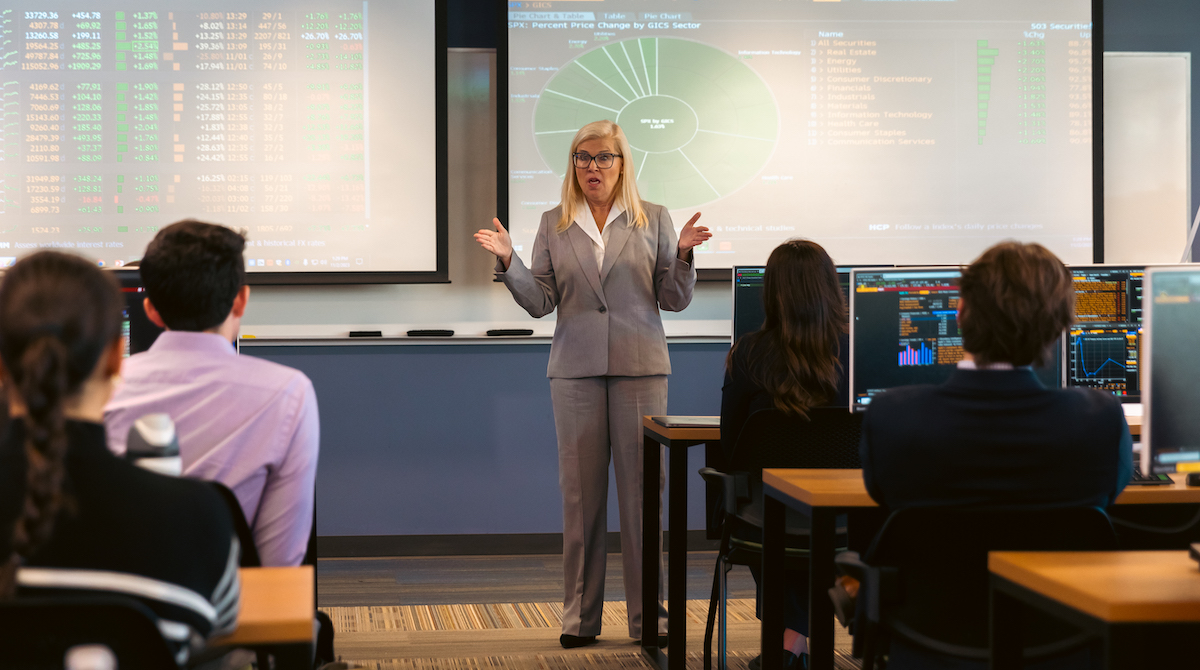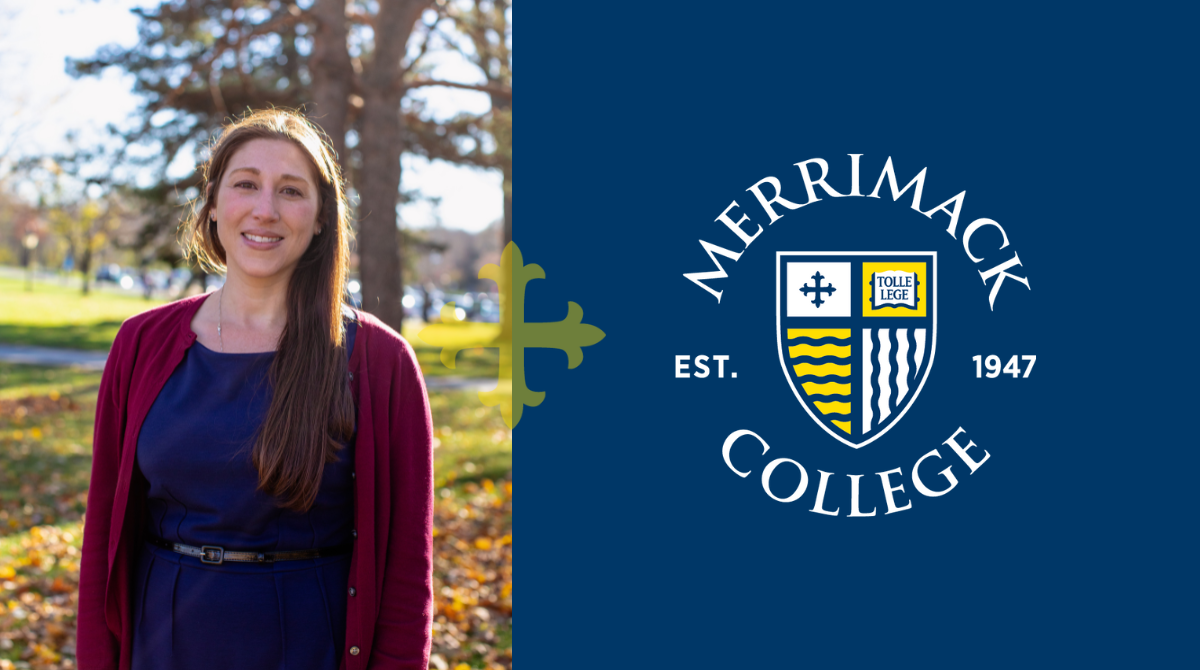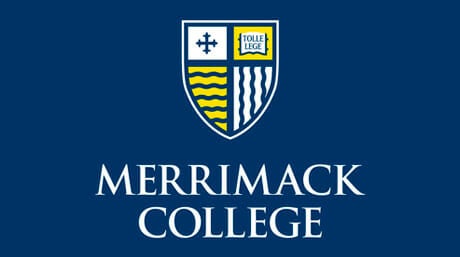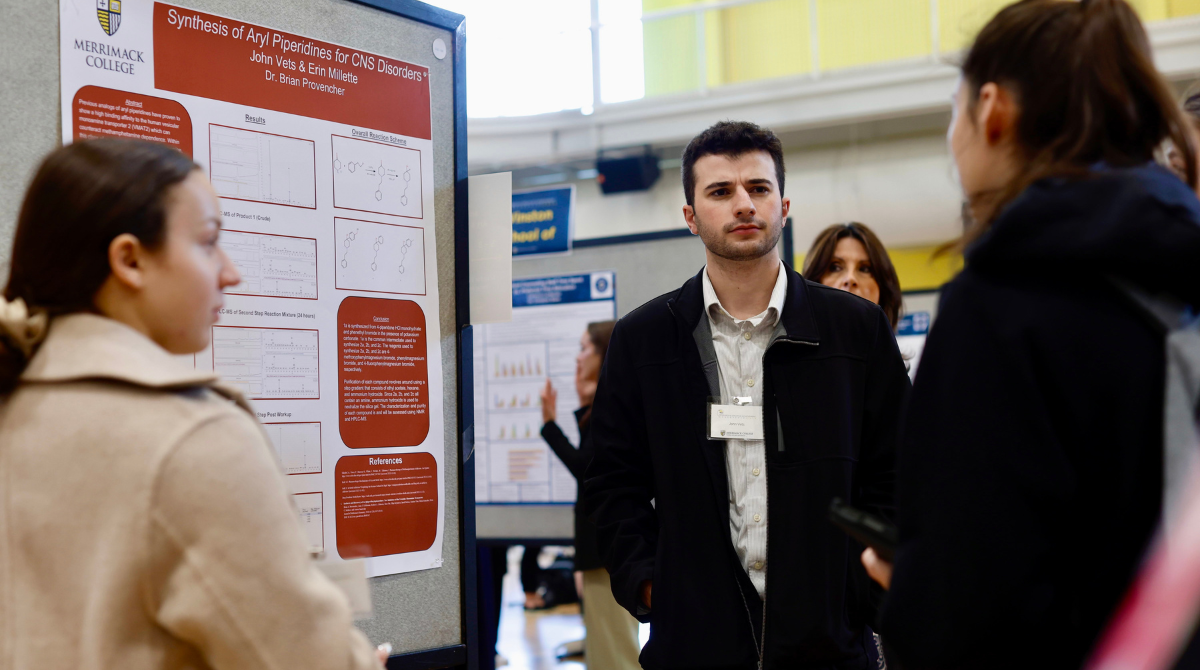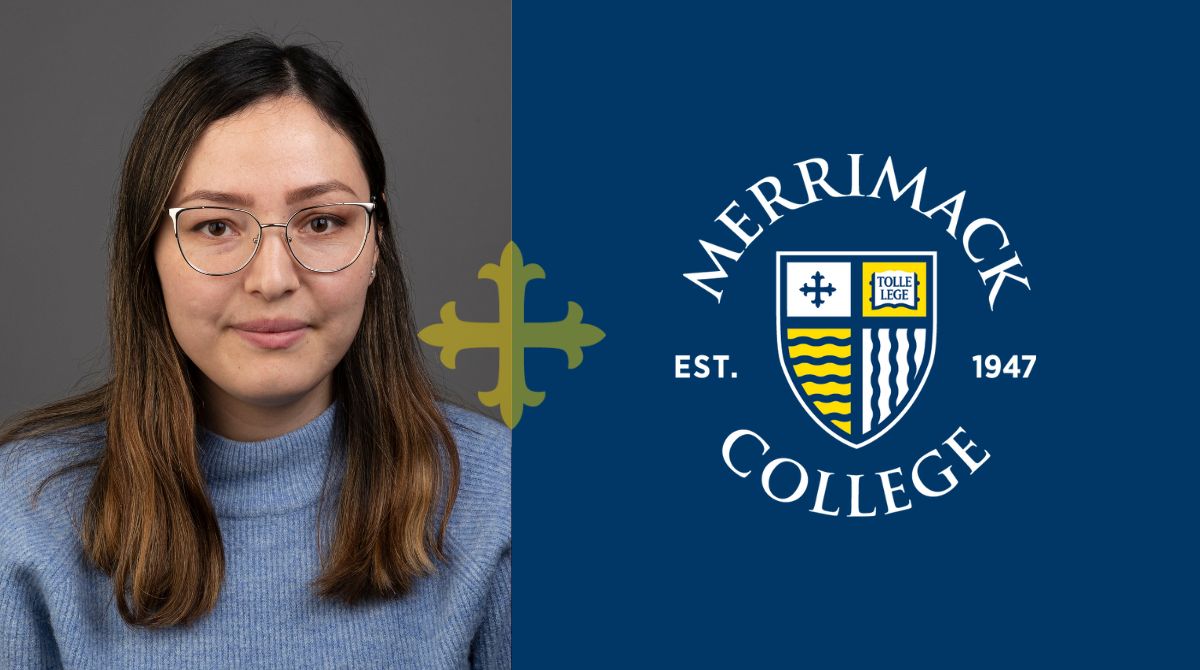The way today’s college students learn and retain information is fundamentally changing. So, Merrimack College is launching a new initiative to support faculty in advancing pedagogical and curricular innovation and fostering greater student outcomes.
The Teaching Excellence Advancement Challenge (TEACH) program, housed in the Office of the Provost, aims to bring faculty cohorts from across Merrimack College together to use their expertise to bring new ideas and methods to how Merrimack students are taught. Additionally, the Center for Teaching and Learning Innovation, Development and Design (CTIDE) and the Library will also provide support to the TEACH cohorts.
Merrimack College Provost and Senior Vice President for Academic Affairs John “Sean” Condon noted that the growing consensus in higher education is that students who practice and engage with course material do much better at learning and retaining the information, compared to being told about the material and then asked to remember it and recite it back.
“I want Merrimack College to be known for that kind of active and engaging teaching and pedagogy,” he added.
The first faculty cohort of the TEACH program will focus on four key areas during the 2024-25 academic year: supporting active pedagogies in larger classes, harnessing generative AI to advance learning, creating a model for undergraduate course-based research experiences and developing novel interdisciplinary concentrations for the new general education core.
Each of the four key areas has a set of goals for the academic year. The AI cohort will identify effective practices and policies for utilizing generative AI in classes, while the course-based research experience cohort will create two pilot courses for spring 2025. The third area of focus is on active pedagogy.
“Developing college-wide policies on the use of AI in the classroom will be beneficial and I believe will put the TEACH program and Merrimack College at the forefront of pedagogical innovation,” said Allison Seitchik, an associate professor of psychology and the lead of the AI cohort. “AI is still brand new and constantly changing, so it keeps us on our toes. But we have the opportunity to embrace it as something that could be very beneficial for our students.”
The TEACH program is modeled after Merrimack College’s successful Strategic Academic Research Trajectory Package (START) program, which incentivizes and rewards faculty who have new or existing research programs and want to pursue external funding to support their research work.
The launch of our initiative on course-based research experiences will give students an opportunity to engage in real-world research projects at the very beginning of their academic careers,” said Jimmy Franco, associate dean in the School of Arts and Sciences. “This initiative will enable us to build off of our tradition of getting students hands-on experience either in the lab or out in the field using the instruments and equipment they will use in their future careers.”
The TEACH program represents the College’s commitment to rethinking how undergraduate education is delivered while bolstering its excellence in undergraduate teaching, student satisfaction and retention, all of which are aspirational outcomes laid out in Merrimack’s strategic plan, Agenda for the Future.
“TEACH will position Merrimack to better meet our students where they are in terms of their learning style and getting them to their fullest potential,” said Condon.
Faculty Participating:
- Active Pedagogy
- AI
